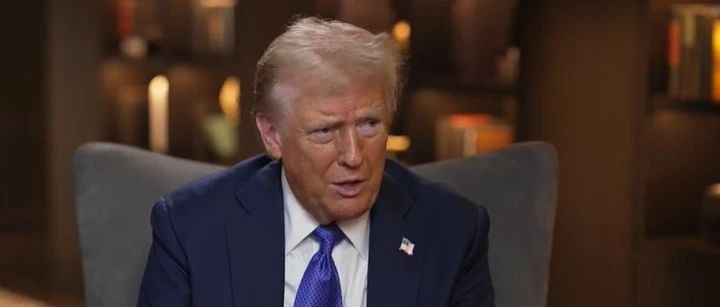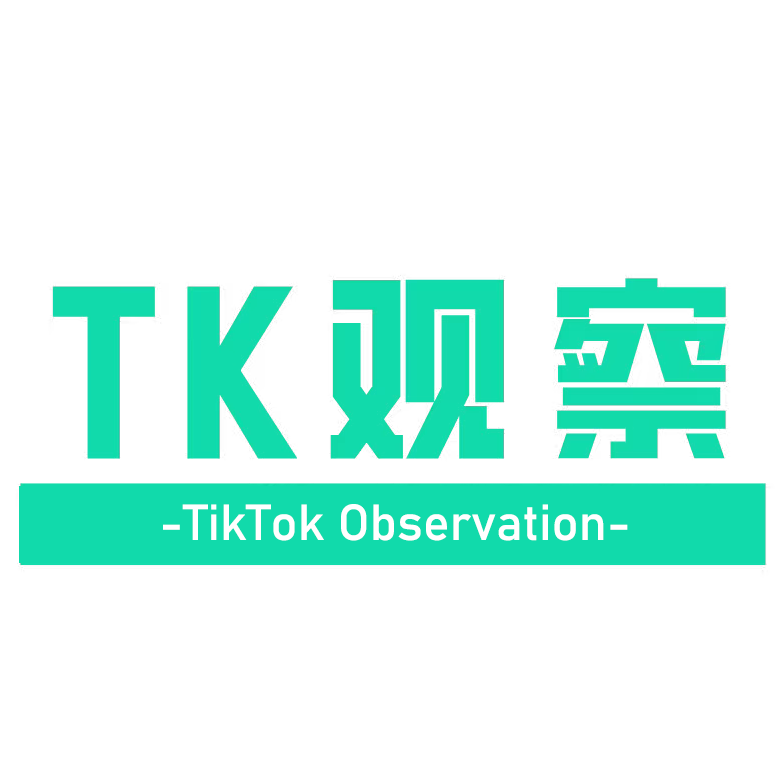TikTok Made Them Successful. Now Your Favorite Creators Face a New Hurdle

TKFFF · 2024-05-22 10:48
 Social media is nothing without the millions of creative online creators and influencers who rely on it to make a living. If TikTok is outlawed nationwide, where does that leave the folks who depend on it financially?
“A TikTok ban would be detrimental to so many people’s well-being,” said Maria Watkins, also known as @livingplanetfriendly, a creator with over 256,000 followers who posts about living a low-waste lifestyle. “Many small businesses have launched their business on the app, and you don’t get this level of engagement on other platforms,” Watkins said.
Citing national security concerns, the US government is moving to force a sale or shutdown of the popular social media platform, but it’s facing a number of legal challenges, including from TikTok’s Chinese-based parent company ByteDance. Several content creators filed a separate lawsuit this week, arguing that prohibiting the app would violate the First Amendment right to freedom of expression.
Alongside the debate around free speech and censorship, a potential ban has also raised concerns over the impact on TikTok creators’ economic livelihoods -- and it’s not an easy pill to swallow.
Social media is nothing without the millions of creative online creators and influencers who rely on it to make a living. If TikTok is outlawed nationwide, where does that leave the folks who depend on it financially?
“A TikTok ban would be detrimental to so many people’s well-being,” said Maria Watkins, also known as @livingplanetfriendly, a creator with over 256,000 followers who posts about living a low-waste lifestyle. “Many small businesses have launched their business on the app, and you don’t get this level of engagement on other platforms,” Watkins said.
Citing national security concerns, the US government is moving to force a sale or shutdown of the popular social media platform, but it’s facing a number of legal challenges, including from TikTok’s Chinese-based parent company ByteDance. Several content creators filed a separate lawsuit this week, arguing that prohibiting the app would violate the First Amendment right to freedom of expression.
Alongside the debate around free speech and censorship, a potential ban has also raised concerns over the impact on TikTok creators’ economic livelihoods -- and it’s not an easy pill to swallow.
How people make money on TikTok
The influencer and creator economy is massive. There are currently 10 times more paid content creators in the US than the total number of police officers, doctors and lawyers combined, according to research reported on Linkedin. Some people start on TikTok to monetize their hobby, share their life stories or leverage audience engagement as small business owners. Once a creator has at least 10,000 followers and 100,000 authentic video views over the last 30 days, they’re eligible for TikTok’s creator fund, which allows them to earn money based on how well a video performs. Some creators make content on a part-time basis to supplement their regular income, pay their bills, gain brand recognition and develop production skills. Others become full-time creators, earning around $179,000 a year, and bigger influencers make an average of $344,000. Here are some of the ways people boost their revenue stream or get compensation on TikTok: Score brand partnerships: Product brands and services are increasingly partnering with creators who have a following because it connects them directly to customers. Sell with TikTok shop: TikTok has a built-in e-commerce platform that allows small business owners to promote and sell their merchandise all in one place. Participate in affiliate marketing: Influencers who promote a brand’s product or service through affiliate marketing make a commission any time a viewer buys the product directly via the online content. Publish sponsored posts: Influencers and content creators can collaborate with brands to create sponsored posts promoting a product or service in exchange for a flat commission.The fall of TikTok could devastate small business owners
What started out as a hobby of decorating wide-brim hats is now the single largest revenue stream for Jenna Zapata. And it’s all thanks to TikTok. Zapata opened Zig Zag Galleries, aka @zigzaggalleries, a contemporary multi-use gallery space in Denison, Texas, in May 2020. It was a tumultuous time for mom-and-pop shops, as COVID-19 lockdowns shuttered over 700,000 businesses in just a few months. Zapata had to quickly pivot and find new ways to sell products online for her business to survive. When she saw someone selling customized drinking tumblers during a TikTok livestream to over 15,000 viewers, Zapata had an idea. Why not sell her specialty hats -- decked out with vintage matchbooks, dried florals, scarves and feathers -- on TikTok live? “I hear a lot of talk about how you need thousands, if not millions, of followers to be successful on apps like TikTok,” said Zapata. “But that means nothing in the grand scheme of things.” In Zapata’s case, she would only need 1,000 followers to be eligible to livestream on the platform. Eventually, she started doing live “hat builds” two nights a week, customizing hats for clients and interacting with her viewers. Running a business is hard, especially in a small town, Zapata said. But with her newfound success on TikTok, she’s able to work with a financial planner and started contributing to a 401(k), something she never found feasible. Zapata is convinced that the TikTok algorithm helps people who need the most visibility. “My TikTok account seems to land in front of exactly the right people,” she said. “I don’t think I’ll ever be able to find an algorithm that can push our business like TikTok does.” Zapata has since been able to give back by renting out her gallery space to local community groups and offering scholarships for up-and-coming artists. She recently received a $5,000 grant from the city to host a meet-up for her hat club, which she built from her TikTok following. “I’m only able to do these things because of TikTok. And it makes me so frustrated that it could all go away,” Zapata said.A TikTok ban could turn lives upside down
Krystalynn Gier, also known as @krystalynngier, makes videos about wellness and sustainability that prioritize mind, body and planet. After getting laid off from her corporate marketing job right before Christmas in 2021, Gier decided to give TikTok a shot full-time. Now it’s her primary stream of income, mostly through brand partnerships. When she lost her job, Gier started posting around six times a day to get out as much content as possible. “I was motivated by the fact that I was finally allowed to be creative at work,” she said. Her life virtually changed overnight. After one viral video, she gained 24,000 followers, and she now has over 46,000. She’s making the same amount as when she was a brand manager for a marketing agency. The money allowed her to kick-start her own business, launch her podcast Mind Body Planet and fund her day-to-day expenses. “Without TikTok, there is no way I’d have a functioning business and continue to be self-employed,” said Gier. The social media app has proven to be an authentic space for building connections and networks. “Finding community on TikTok was pretty unsuspecting,” said Gier. “If it goes away, we’re reverting back to other platforms where it’s normal to be inauthentic.”TikTok allows creators to support themselves and thrive
Zapata and Gier are just two of the many voices on TikTok across the US who are both nervous and upset over a bipartisan bill that could effectively ban the social media platform. Megan Hoang (@another_internet_mom) is a lifestyle content creator who showcases her life in Portland, Oregon, as a mom and small business owner of Mad Haus Kids. Hoang said she’s gotten most of her business through the app, allowing her to earn a steady flow of income while giving her plenty of personal flexibility. “TikTok has made it possible for me to make money from home while I raise kids, as well as build a community,” Hoang said. For Joshua Dairen (@joshuadairen), a content creator and owner of The Coffee Shop in Opelika, Alabama, TikTok has been an invaluable resource. Dairen is one of the few Black content creators focusing on paranormal activity and history in the South. In one video post, Dairen shares how his TikTok has changed his life. “I’ve become a self-sustaining content creator. I’ve had opportunities that I couldn’t personally manufacture myself in any way,” he said. His online content has opened other doors, including bringing the most business to his coffee shop. The TikTok ban would have a massive impact on the financial livelihoods of people who rely on the platform to support or supplement them monetarily, Dairen said. What’s even more devastating, he noted, is how outlawing TikTok would damage the visibility given to minority-owned small businesses and creators from underserved communities. Brennan Kai (@brennan.kai), a full-time content creator who advocates for food waste reduction, planet-positive eating, slow-living and climate action, lost her job in 2020 due to the pandemic. Kai applied to the TikTok education program on a whim, and she’s now getting paid to create content on issues she was passionate about, like sustainability and healthy eating. “Without TikTok, I’d be significantly impacted in terms of work and income,” said Kai.For now, creators are transferring their skills to other platforms
Though a TikTok ban wouldn’t go into effect until next year, and the federal law could be held up in the courts even longer, the future of the app is unclear. To prepare for the worst-case scenario, many content creators and influencers are transferring their skills to other avenues. Gier is preparing to shift gears, for example, by focusing on growing her following elsewhere. “If there’s any semblance of good news, it’s that the skills I’ve crafted through TikTok translate to other platforms like Instagram and YouTube,” said Gier. Kai has also been planning for a future without TikTok. “Since this has been a topic of debate for a long time now, I’ve focused on diversifying and creating content across multiple platforms so that I’ll have a backup without TikTok,” she said. But trying to build a brand or business without TikTok, or even start from scratch, is nerve-racking. “I have to have a plan because we don’t know if it’s going to happen or when exactly it’s going to happen,” said Zapata. “The threat looming over us is honestly the worst feeling.” [ad]文章来源:CNET
TKFFF公众号
扫码关注领【TK运营地图】

TKFFF合作,请扫码联系!

文章来源: 文章该内容为作者观点,TKFFF仅提供信息存储空间服务,不代表TKFFF的观点或立场。版权归原作者所有,未经允许不得转载。对于因本网站图片、内容所引起的纠纷、损失等,TKFFF均不承担侵权行为的连带责任。如发现本站文章存在版权问题,请联系:1280199022@qq.com
分享给好友:













